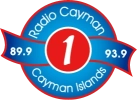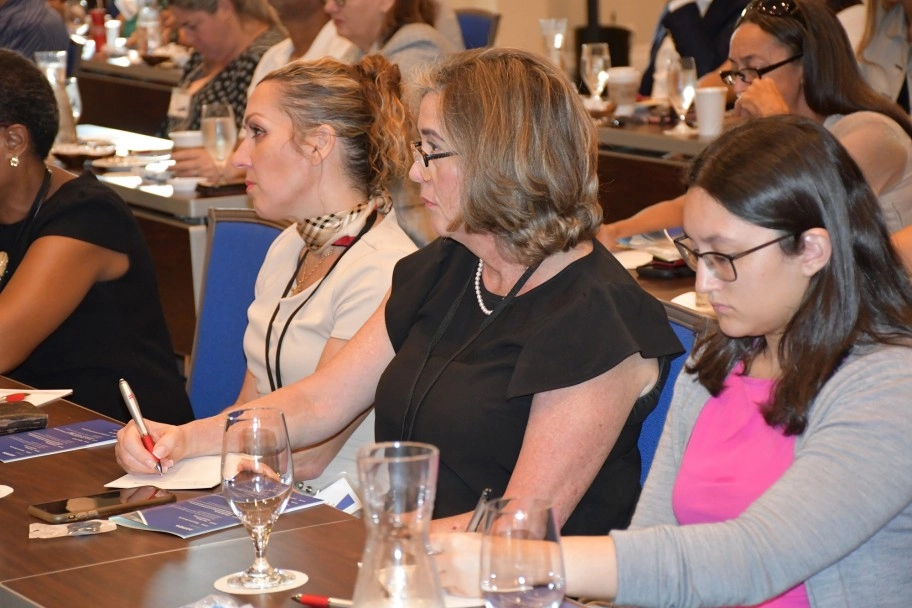Department of Commerce & Investment Sponsors Anti-Money Laundering Training Seminar
Department of Commerce & Investment Sponsors Anti-Money Laundering Training Seminar
Some 60 local realtors and developers attended a half day training seminar at the Grand Cayman Marriott, on 6 July 2021, that aimed to create awareness of anti-money laundering (AML) practices.
FTS Management and Training Solutions organised the seminar, and sponsors included: the Department of Commerce and Investment (DCI), the government agency with responsibility for licensing and regulating real estate agents, brokers and property developers; HSM Chambers; Provenance Properties Cayman Islands and Christie’s International Real Estate.
Mr Byles said a key focus for his presentation was to explain to the audience the signs of what happens when AML risk is handled poorly, and how this could negatively impact a country’s economy.
Next on the programme was DCI’s Head of Compliance and Enforcement, Ms. Claudia Brady, who shared with the audience trends and lessons learned from onsite inspections, as well as tips for realtors and developers to minimise their risk exposure.
Ms. Brady started her presentation by outlining DCI’s ongoing efforts to increase awareness to enhance detection and curb potential money laundering activities in the Cayman Islands.
“Under Cayman Islands anti-money laundering and terrorist financing guidelines, realtors and developers who sell real estate, are termed designated non-financial businesses or professions (DNFBPs), and widely regarded internationally as vulnerable to money laundering and terrorist financing (ML/TF) abuse,” Ms Brady commented.
- the Caribbean Financial Action Task Force (CFATF) Fourth Round Mutual Evaluation Report for the Cayman Islands, DCI enhanced its supervisory framework to address vulnerabilities in real estate sold directly by property developers without the involvement of real estate agents. Ms Brady noted that this in essence, requires developers selling on their own to comply with all sections of the Anti-money Laundering Regulations.
She proceeded to outline to the audience DCI’s risk-based approach to anti-money laundering and terrorism financing compliance, which, she said, is tested during onsite inspections carried out based on the risk rating of the entity.
In addition to these inspections she advised there is an annual inherent risk questionnaire which is part of the ongoing supervision process, as well as a mandatory requirement to submit the questionnaire prior to the renewal of the business license.
The highlight of her presentation was the trends and lessons learned as a result of increased supervision of the sector since 2019.
“There have been overall improvements in the entities who are collaborating with DCI to ensure they are compliant, and who as a result now have appropriate KYC (Know Your Customer) and CDD (Customer Due Diligence) measures in place to protect themselves and other stakeholders from potential money laundering schemes”, she stated.
Mrs. Brady concluded that, “DCI has been mandated to continue outreach efforts to the industry. As a result, it was fitting for the Department to sponsor this training seminar. We believe by continuing to raise knowledge and awareness within the sector, realtors and developers will be best placed to detect the first signs of money laundering and report any suspicious activities for further investigation”
Attorney, co-sponsor and co-presenter Huw Moses said his focus was on educating the sector from the perspective of lawyers who can identify the legal risks involved in selling real estate and help realtors through that process as necessary.
At the end of the presentations, participants were able to take part in a question and answer session and to complete an online test.
Latest News
-
Premier Updates the Public on Cannabis Decriminalisation, Lottery ReferendumGovernment13 February 2026, 05:22 AM
-
Caymanian Cayman Airways Captain Completes Final Flight with Son as Co-PilotTourism13 February 2026, 05:21 AM
-
Cayman Art Week announces new dates for CAW26 from 26-31 May 2026Art and Cu...13 February 2026, 05:20 AM
-
Government Preparedness Response to Regional Migration DevelopmentsGovernment12 February 2026, 05:10 AM
-
PPM: Government’s Fee Reconsideration Confirms Budget Measures Were RushedPolitics &...12 February 2026, 05:08 AM


